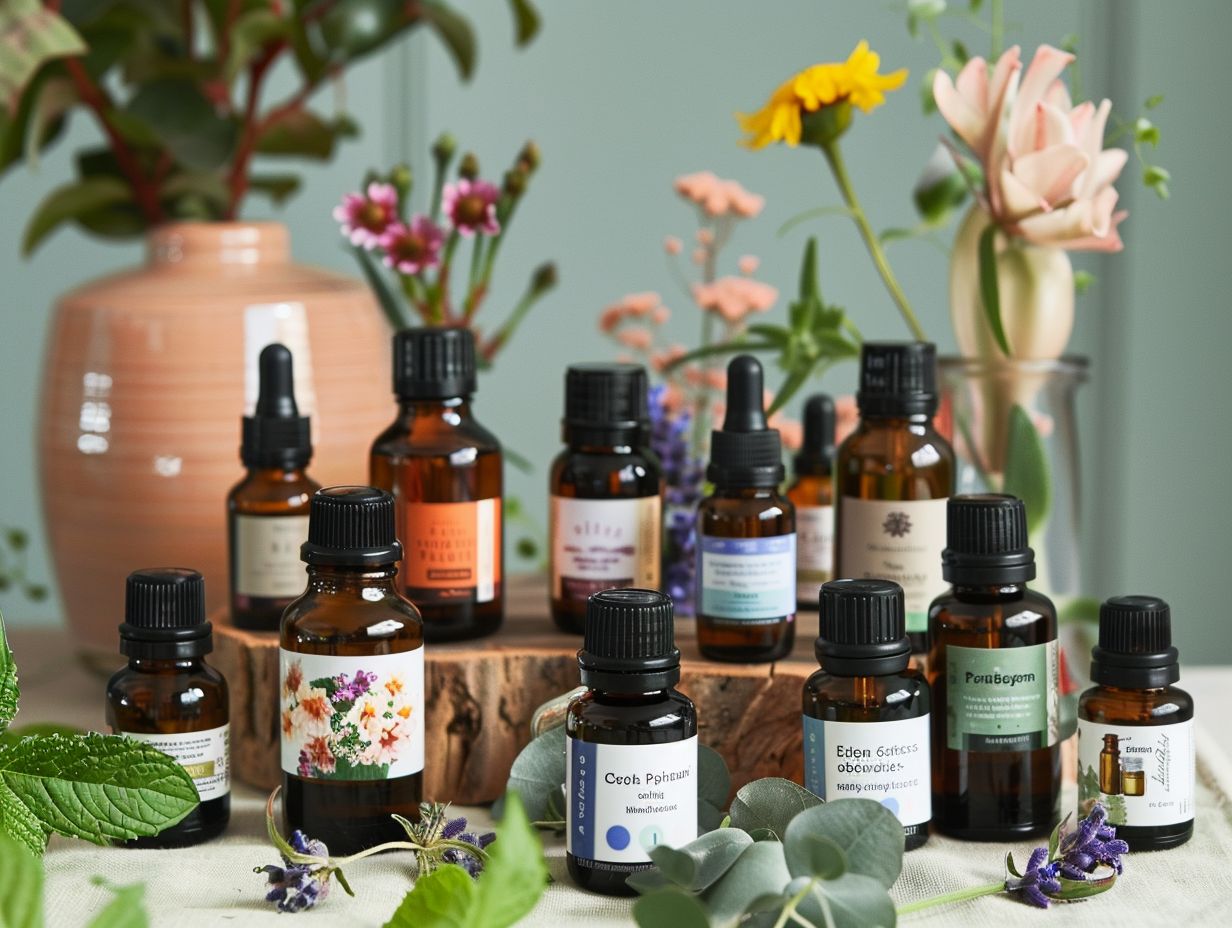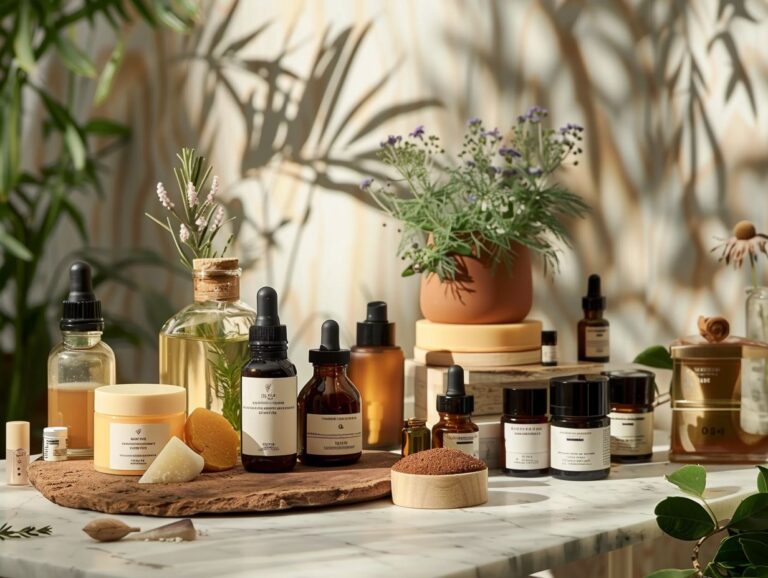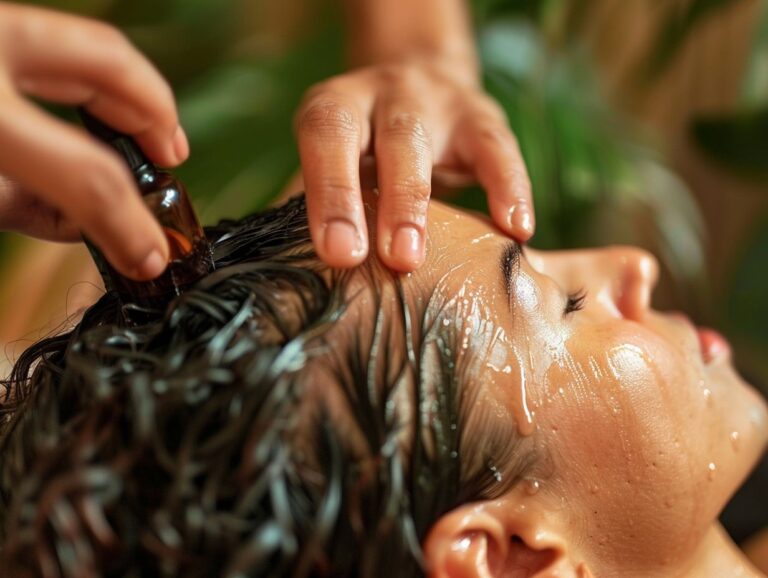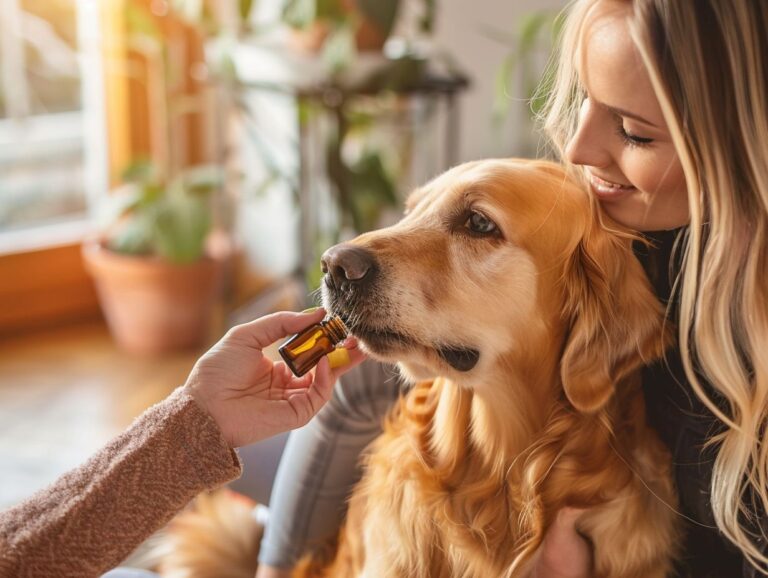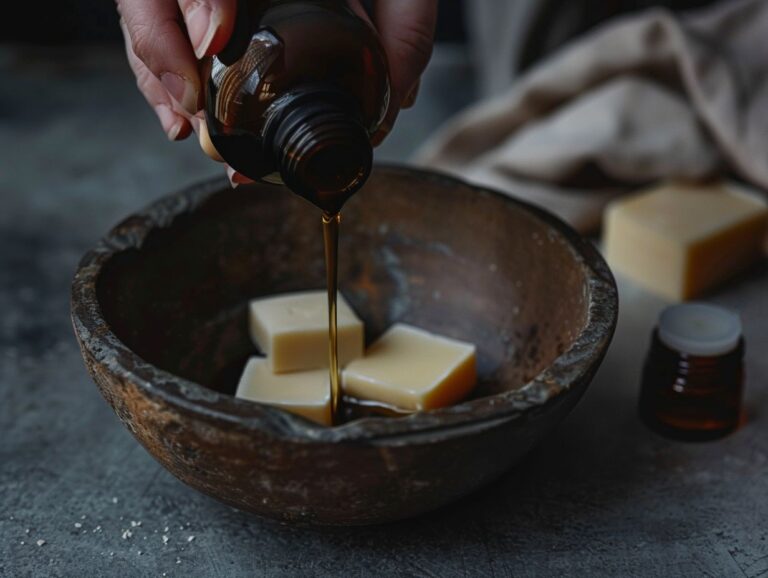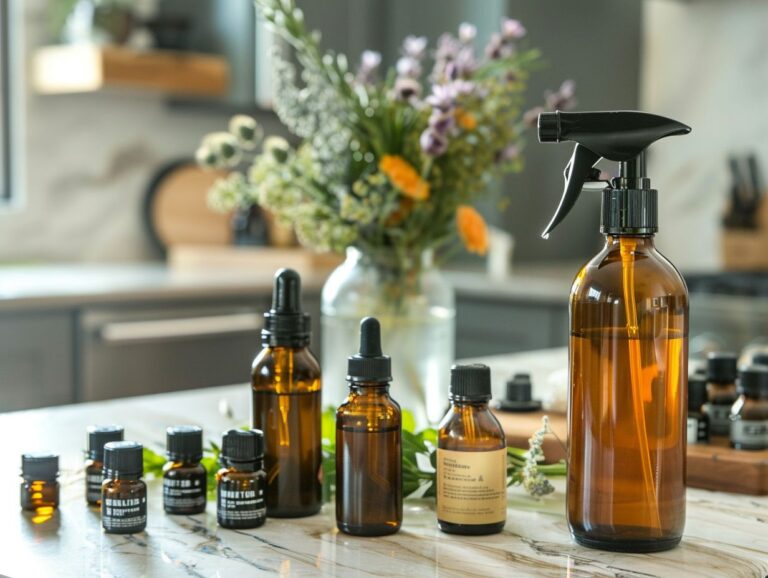What Essential Oils Are Safe to Drink
Essential oils have gained popularity for their therapeutic benefits, but are all essential oils safe to ingest?
We discuss what essential oils are, how they are used, and the risks associated with ingesting them.
Explore the potential side effects and toxicity of ingesting essential oils, as well as the dangers of drinking them.
Identify which essential oils are safe to drink, the recommended dosages, and the best ways to consume them safely.
Delve into the world of essential oils and their consumption with us.
Key Takeaways:
What Are Essential Oils?
Essential oils are concentrated liquids containing volatile aroma compounds from plants. They are often extracted through distillation or mechanical methods, capturing the plant’s fragrance, flavor, and unique properties.
Once extracted, these oils are incredibly versatile and are commonly used in various applications, including aromatherapy, skincare, and overall wellness routines. Lemon, Peppermint, and Grapefruit are among some popular essential oils known for their numerous benefits.
In aromatherapy, these oils are diffused or added to carrier oils to create soothing scents that can help promote relaxation, improve mood, and even alleviate stress. In terms of skincare, essential oils like those from Young Living are often used in natural beauty products, due to their nourishing and rejuvenating qualities.
How Are Essential Oils Used?
Essential oils can be used in various ways, including aromatically, topically, and internally. Aromatic use involves inhaling the scent for therapeutic benefits, while topical application involves directly applying the oil to the skin.
Different methods of utilizing essential oils provide individuals with a wide array of choices to incorporate these natural remedies into their daily routines effectively. One popular method is diffusion, where essential oils are dispersed into the air using devices like diffusers, filling the room with the delightful aroma. Massaging essential oils into the skin not only helps in absorption but also promotes relaxation and skin health. Ingestion, although controversial and not recommended by some experts like the FDA and Western Australian Poisons Information Centre, is another way some individuals choose to use certain oils internally for specific purposes.
What Are the Risks of Ingesting Essential Oils?
While essential oils offer various health benefits, ingesting them poses certain risks due to their concentrated nature. Safety precautions and proper dosages are crucial to avoid adverse effects on health.
Essential oils, when taken internally, can lead to toxicity as the potency is significantly higher than their natural form. The FDA cautions against casual ingestion without professional guidance, as this can result in harmful reactions.
Allergic reactions are not uncommon when ingesting essential oils. Individuals may experience symptoms ranging from mild irritation to severe respiratory distress. Can you use essential oils in drinks safely?
It is essential to respect the dose recommendations provided on the labels and consult a healthcare provider before ingesting any essential oils. The Western Australian Poisons Information Centre also emphasizes the potential dangers of misuse and encourages the public to seek expert advice to ensure safe usage.
What Are the Potential Side Effects of Ingesting Essential Oils?
Ingesting essential oils improperly can lead to various side effects, especially affecting the digestive system. Symptoms may include nausea, vomiting, diarrhea, or other gastrointestinal issues.
Specific oils like Lemon and Peppermint are known to have potent effects on the digestive tract when ingested. It is crucial to understand that essential oils are highly concentrated extracts and can be harsh on the stomach lining when not diluted properly before ingestion. Not recognizing and addressing these symptoms promptly can lead to further complications and impact overall well-being. Safety precautions when using essential oils internally cannot be stressed enough to avoid adverse effects on the body.
Can Essential Oils Be Toxic When Ingested?
Certain essential oils, such as Grapefruit, Lemon, and Smart & Sassy blend, can be toxic when ingested in large quantities. Overconsumption may lead to adverse reactions and harmful effects on the body.
It is crucial for individuals to understand the potential essential oils in drink effects of these oils and prioritize safety in their usage. The Food and Drug Administration (FDA) emphasizes the importance of moderation and proper dilution when using essential oils, especially those known to have toxic properties.
Grapefruit oil, for instance, contains compounds that can interact with certain medications and pose risks if not used carefully. Lemon oil, when ingested in excess, may cause skin sensitivities and gastrointestinal issues. Similarly, the Smart & Sassy blend, while boasting various benefits, should be approached with caution to avoid any toxicity concerns.
What Are the Dangers of Drinking Essential Oils?
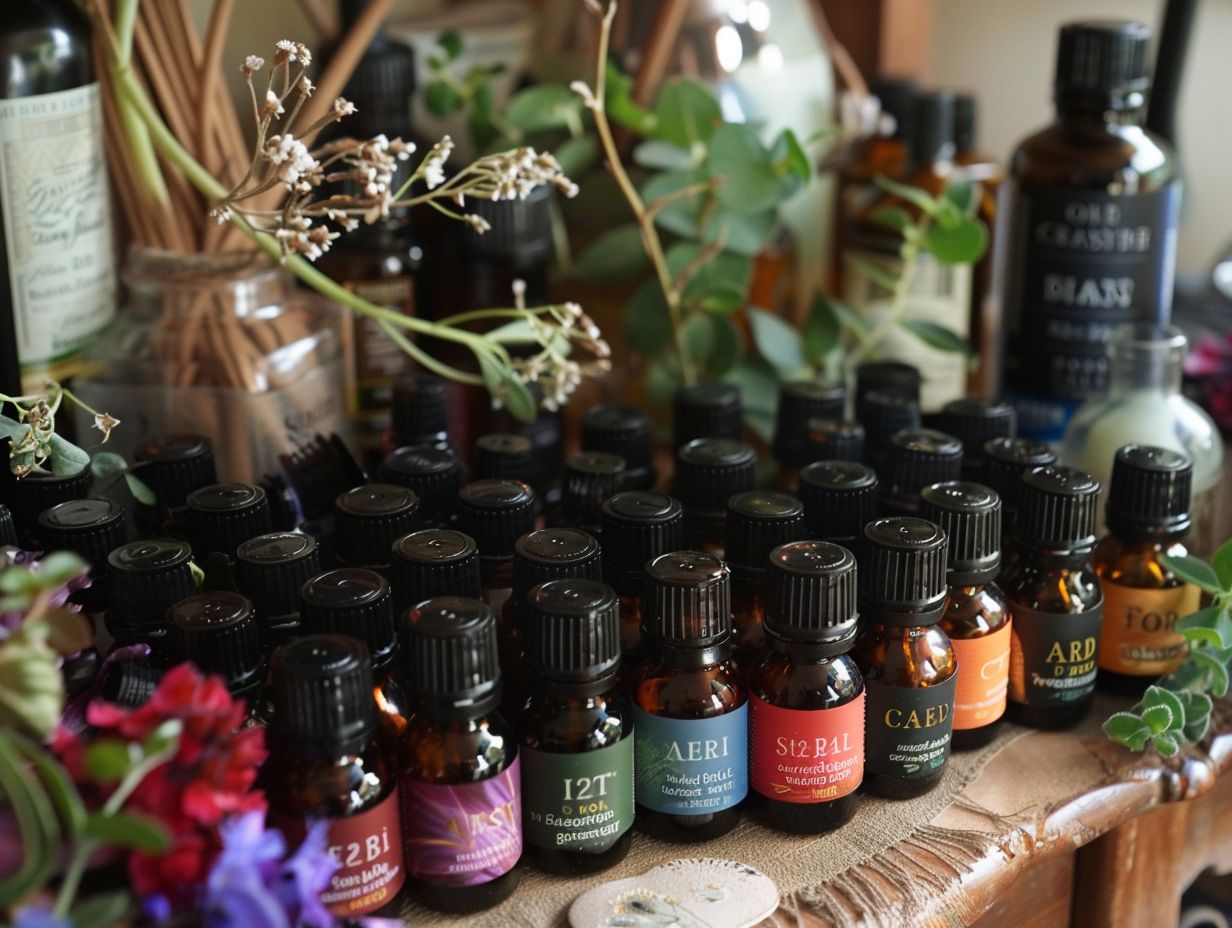
Unlike regular edible oils, essential oils are highly concentrated extracts from plants, and ingesting them without proper guidance can result in serious consequences. The U.S. Food and Drug Administration does not regulate essential oils for internal use, and excessive consumption can harm internal organs or interact negatively with medications. It’s crucial to understand that just because something is natural does not mean it is safe for internal consumption. Always consult a qualified healthcare professional or aromatherapist before ingesting any essential oil.
Which Essential Oils Are Safe to Drink?
Certain essential oils like Peppermint and Lemon are considered safe for internal consumption when used appropriately. They offer potential benefits for the digestive system and overall vitality.
Peppermint oil, known for its soothing properties, can help ease indigestion and support healthy bowel movements. Its cooling effect can also alleviate feelings of nausea and promote overall digestion.
Lemon oil, on the other hand, is praised for its cleansing and detoxifying properties. When ingested, it can aid in digestion, reduce bloating, and support liver function, contributing to enhanced vitality.
Peppermint Oil
Peppermint essential oil is a popular choice for internal use due to its cooling properties and potential benefits for digestion. Diluting it in water is a common method to ensure safety and effectiveness.
When ingested, Peppermint essential oil can provide immense relief for digestive issues such as bloating, gas, and indigestion. The oil’s refreshing qualities stimulate the digestive system, promoting smoother processes and easing discomfort. Adding a few drops of the oil to a glass of water is a simple yet powerful way to incorporate it into your routine. It’s important to remember that dilution in water is crucial to prevent any potential irritation or adverse reactions, ensuring a safe and pleasant experience.
Lemon Oil
Lemon essential oil is known for its bright, citrusy aroma and potential health benefits when ingested. It can be added to water or beverages for a refreshing and invigorating experience.
When consumed internally, lemon essential oil offers a range of benefits beyond its aromatic qualities. Rich in antioxidants and vitamin C, it can support immune health and promote overall wellness. The refreshing scent of lemon can uplift the mood and ease stress, making it a popular choice for aromatherapy.
Incorporating lemon essential oil into your daily routine is easy. Simply adding a drop or two to a glass of water not only enhances the flavor but also provides a burst of freshness. It can be a great alternative to sugary drinks while still providing a delightful taste.
Ginger Oil
Ginger essential oil can be safely ingested following proper label instructions and dosage guidelines. It offers warming properties and potential benefits for digestion and overall well-being.
When ingesting ginger essential oil, it is crucial to remember that a little goes a long way – a drop or two can be highly effective. This powerful oil can aid in soothing digestive discomfort, alleviating nausea, and promoting gastrointestinal health.
To ensure safe consumption, always dilute the oil with a carrier oil and follow the specific recommendations provided on the product label. Respecting the recommended dosages is essential to prevent any adverse reactions and maximize the oil’s therapeutic effects.
Lavender Oil
Lavender essential oil is renowned for its calming and relaxing properties, making it a soothing choice for internal consumption. It can promote relaxation and support overall well-being.
When unsafe essential oils are ingested, it interacts with the body to help reduce stress and anxiety levels, creating a sense of tranquility. Studies suggest that the compounds in lavender oil may have potential health benefits such as improving sleep quality, reducing headaches, and even alleviating mild pain.
To incorporate this wonderful oil for a tranquil experience, you can add a drop to a warm cup of herbal tea, mix it in with honey, or use it in cooking to infuse dishes with its soothing aroma.
Chamomile Oil
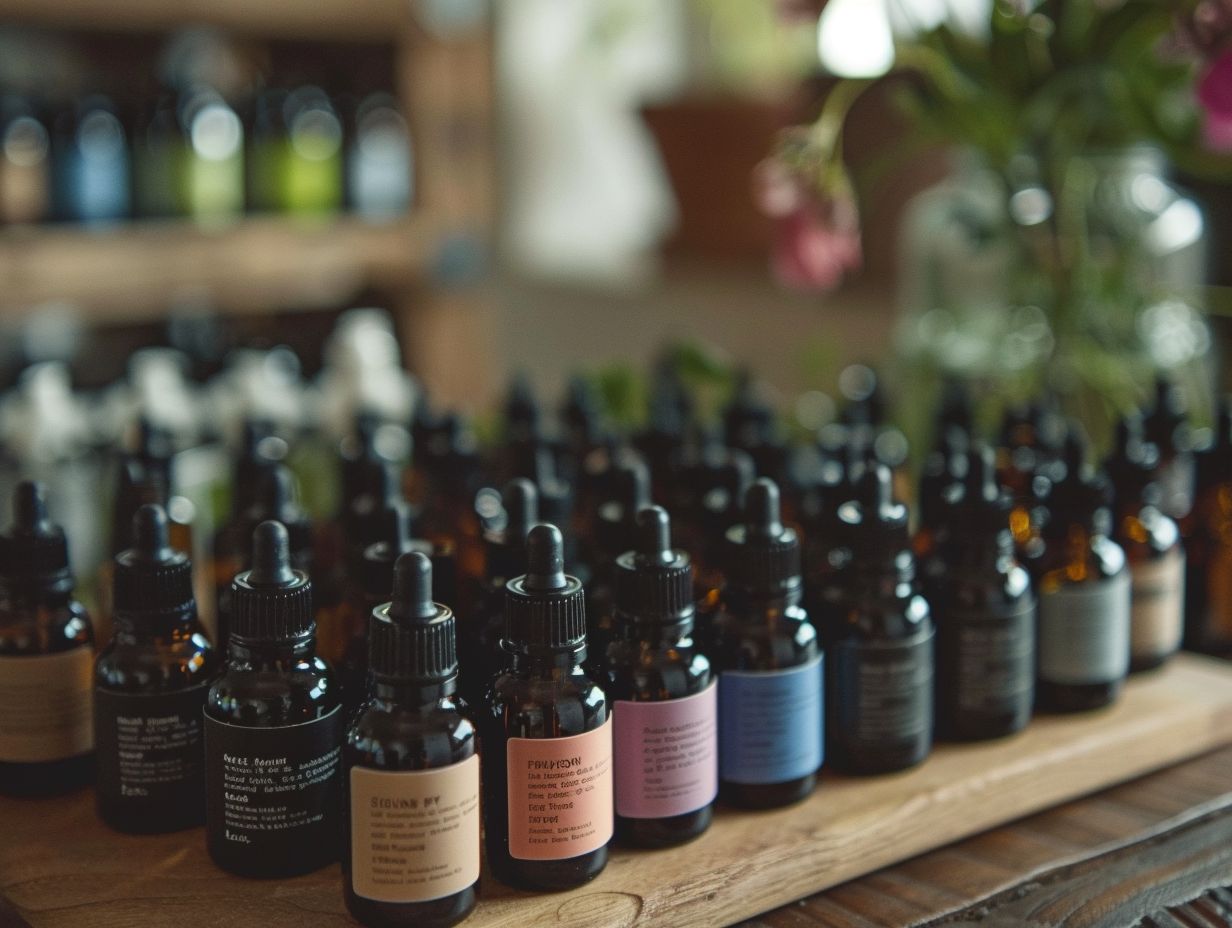
Besides its aromatic charm, Chamomile essential oil offers a myriad of advantages when used for consumption. By incorporating this oil into your routine, you can experience an overall sense of tranquility and alleviate stress. Research suggests that chamomile contains compounds that may help reduce anxiety and improve sleep quality.
Its renowned calming effects not only promote better sleep but also contribute to general well-being. Adding a few drops of Chamomile essential oil to warm water or tea before bedtime can help create a soothing bedtime ritual, enhancing your relaxation routine and facilitating a restful night’s sleep. It’s fascinating how a simple natural remedy can have such profound effects on our sleep and overall health.
How Should Essential Oils Be Consumed Safely?
Consuming essential oils safely requires proper education on usage guidelines, dilution methods, and necessary precautions. Understanding the dos and don’ts of internal use is crucial for reaping the benefits without harm.
In terms of dilution ratios, it’s essential to follow recommended standards to avoid skin irritation or other adverse reactions. The general rule of thumb is to dilute essential oils with a carrier oil before applying topically or ingesting. A commonly used ratio is 2-3 drops of essential oil per teaspoon of carrier oil.
- It’s highly advised to seek guidance from reliable educational resources, such as certified aromatherapists or reputable books, to expand your knowledge on safe usage. These sources can provide detailed information on specific oils, their properties, and appropriate methods of application.
- Ahead of ingesting any essential oil, it is crucial to ensure it is safe for internal use, as not all oils are suitable for consumption. Always consult with a knowledgeable professional to determine the suitability and proper dosage for internal ingestion.
- To maintain safety, store essential oils out of reach of children and pets, and never use them undiluted on the skin. Perform a patch test before widespread application to check for any allergic reactions.
What Are the Recommended Dosages for Ingesting Essential Oils?
Determining the recommended dosages for ingesting essential oils depends on factors such as the oil type, individual health status, and intended benefits. Following professional guidance and starting with lower doses is advisable.
Individual variations play a crucial role in how each person may react to essential oils. Factors like age, weight, metabolism, and existing medical conditions can impact safe dosages. Consulting a qualified aromatherapist or healthcare provider is essential before ingesting any essential oils.
The gradual approach to consumption is highly recommended to monitor any adverse effects and adjust dosages accordingly. Tailored dosing plans can optimize the potential benefits while minimizing the risks associated with ingesting essential oils.
What Are the Best Ways to Dilute Essential Oils for Consumption?
Properly diluting essential oils for consumption involves using carrier oils or water to reduce potency and minimize potential irritation. Dilution ratios and suitable mediums play a crucial role in ensuring safe ingestion.
Carrier oils, such as jojoba, coconut, or olive oil, are commonly used to dilute essential oils for internal consumption due to their mild nature and compatibility with the skin and digestive system. When diluting essential oils in water, it’s essential to use a dispersant like honey or milk to ensure even dispersion. Understanding the proper dilution ratios for different oils, age groups, and health conditions is paramount in preventing adverse reactions and maximizing the benefits of ingesting essential oils.
Are There Any Precautions to Take When Drinking Essential Oils?
When drinking essential oils, especially for internal benefits, it’s essential to observe safety precautions and consider factors like dosage, allergies, and suitability for children. Caution and awareness are key to responsible consumption.
Safety should always be the top priority when ingesting essential oils. Before consumption, it’s crucial to consult with a healthcare professional to ensure it is safe for you.
- Proper dilution is critical to prevent irritation or adverse reactions.
- Small dosages should be administered initially to gauge tolerance.
- Children are more sensitive; hence, specific guidance is necessary for their safety.
Being informed and attentive to these special considerations can help harness the benefits of essential oils without compromising your health.
Frequently Asked Questions
What Essential Oils Are Safe to Drink?
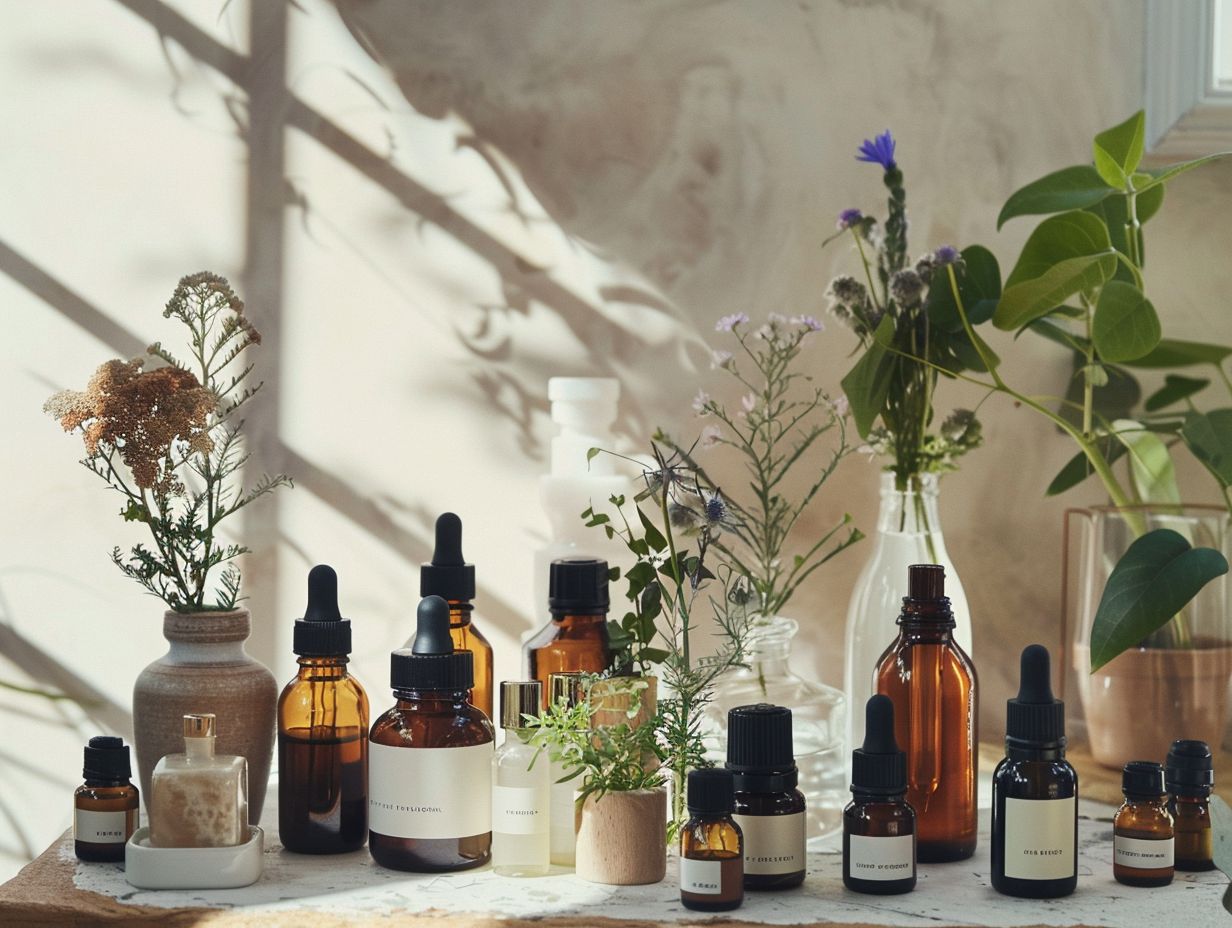
Can I Drink Any Essential Oil?
No, not all essential oils are safe to consume. Some essential oils may be toxic or have adverse effects on the body when ingested.
Are There Any Essential Oils That Are Safe for Drinking?
Yes, there are some essential oils that are safe for consumption, such as peppermint, lemon, and chamomile. However, it is important to dilute them properly and use them in moderation.
How Should I Dilute Essential Oils for Drinking?
Essential oils should always be diluted before ingesting. A general rule is to add 1-2 drops of essential oil to 8 ounces of liquid.
What Happens if I Drink Too Much Essential Oil?
Consuming too much essential oil can lead to adverse effects such as nausea, vomiting, and dizziness. It is important to use essential oils in moderation and follow recommended dilution guidelines.
Is it Safe to Give Essential Oils to Children or Pets?
No, it is not safe to give essential oils to children or pets without consulting a healthcare professional first. Children and pets may have different reactions and sensitivities to essential oils, so it is important to use caution.

